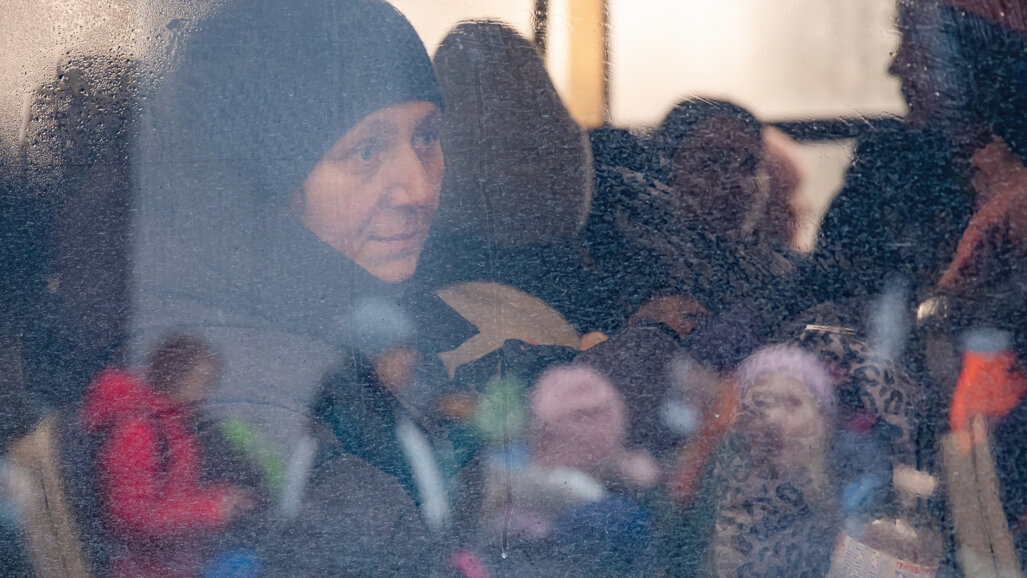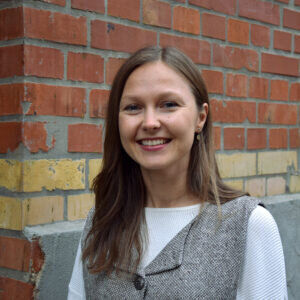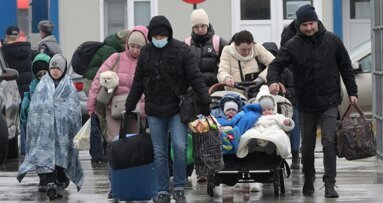AACHEN, Germany: Dental care is vital for well-being and overall health but is sometimes neglected because of certain barriers to accessing dental services. In a recent study, researchers examined the oral health of Ukrainian refugees in Germany and identified some difficulties in accessing dental care in the country. It also investigated the refugees’ mental health state in relation to oral health problems. The study is the first one to cover these topics in the population of Ukrainian refugees in Germany.
According to the UN Refugee Agency, various conflicts, wars and violence resulted in over 40 million refugees and asylum seekers worldwide at the end of 2022. By June 2023, the ongoing war in Ukraine had forced 6.3 million Ukrainian refugees to flee their homes and seek safety. Germany welcomed over one million Ukrainian refugees, which meant new challenges for the healthcare system and, in particular, for dental care.
Oral care often plays a subordinate role for refugees, whose prime concerns are integrating into the host nation, learning a new language, finding sources of income and establishing a normal level of life. Needless to say, this may have an impact on their oral health behaviour and result in issues such as high caries prevalence and untreated teeth.
The study took place between September and December 2022 and included people with Ukrainian citizenship who had escaped their home country because of the war. All participants were required to be at least 14 years old. Ukrainians who had travelled to Germany before the war and were not able to go back to Ukraine were also included. All participants received either a paper-based or a web-based questionnaire that covered topics such as general demographic information, oral health status and practices, access to dental care and stress and anxiety levels. In total, 724 questionnaires were included in the analysis.
The researchers reported that the majority of the participants rated their state of teeth and gingivae as average or better than average. However, a fifth of the participants said they avoided smiling because of their teeth or felt embarrassed owing to the appearance of their teeth. The most frequent limiting factors to accessing dental care were found to be finances (82.6%), language barrier (82.2%) and complicated healthcare system (74.1%).
Additionally, 45.8% of the participants in the study scored ten or more on the Patient Health Questionnaire and 37.4% on the Generalized Anxiety Disorder 7-item scale, respectively, which suggests moderate depression and anxiety. The data also showed that these participants were more likely to report pain and a poor state of teeth and gingivae and to fail a dental consultation.
Overall, 59.6% of the participants reported not consulting a dentist when needed. Failed consultations were associated with a poorer reported state of teeth and gingivae.
The findings indicate a link between mental health and oral health, pointing to the unique needs of Ukrainian refugees. In light of the findings, the researchers believe that dentists should improve their knowledge of post-traumatic syndromes, behavioural sciences and psychology in general, especially in relation to war-affected people.
Further research is required to assess the cultural and medical needs of Ukrainian refugees and to improve their access to dental services.
The study, titled “Oral health, stress and barriers accessing dental health care among war-affected Ukrainian refugees in Germany”, was published online on 27 October 2023 in BMC Oral Health.
Tags:
ABUJA, Nigeria: The Medical and Dental Council of Nigeria (MDCN) said in June that it would not recognise medical and dental degrees obtained from Ukrainian...
LEIPZIG, Germany: Dental companies may have expected a widespread ebbing away of the SARS-CoV-2 pandemic to bring them out of the financial woods. However, ...
TOKYO, Japan: The government has increased its set national insurance remuneration for palladium dental restorations owing to the soaring price of the ...
On 27 February, three days after Vladimir Putin launched his invasion of Ukraine, Dr Miguel Stanley set off from Lisbon in Portugal to Cracow in Poland with...
COLOGNE, Germany: As of 15 March, approximately three million people have fled Ukraine since the Russian invasion started in February, according to the ...
BUCHAREST, Romania: As Russia’s aggression against Ukraine has continued, humanitarian responses too have intensified, spreading to more and more ...
WARSAW, Poland: In response to Russia’s aggression against Ukraine, many humanitarian actions have been taken to help the civilian population. Among them ...
Live webinar
Tue. 24 February 2026
1:00 pm EST (New York)
Prof. Dr. Markus B. Hürzeler
Live webinar
Tue. 24 February 2026
3:00 pm EST (New York)
Prof. Dr. Marcel A. Wainwright DDS, PhD
Live webinar
Wed. 25 February 2026
11:00 am EST (New York)
Prof. Dr. Daniel Edelhoff
Live webinar
Wed. 25 February 2026
1:00 pm EST (New York)
Live webinar
Wed. 25 February 2026
8:00 pm EST (New York)
Live webinar
Tue. 3 March 2026
11:00 am EST (New York)
Dr. Omar Lugo Cirujano Maxilofacial
Live webinar
Tue. 3 March 2026
8:00 pm EST (New York)
Dr. Vasiliki Maseli DDS, MS, EdM



 Austria / Österreich
Austria / Österreich
 Bosnia and Herzegovina / Босна и Херцеговина
Bosnia and Herzegovina / Босна и Херцеговина
 Bulgaria / България
Bulgaria / България
 Croatia / Hrvatska
Croatia / Hrvatska
 Czech Republic & Slovakia / Česká republika & Slovensko
Czech Republic & Slovakia / Česká republika & Slovensko
 France / France
France / France
 Germany / Deutschland
Germany / Deutschland
 Greece / ΕΛΛΑΔΑ
Greece / ΕΛΛΑΔΑ
 Hungary / Hungary
Hungary / Hungary
 Italy / Italia
Italy / Italia
 Netherlands / Nederland
Netherlands / Nederland
 Nordic / Nordic
Nordic / Nordic
 Poland / Polska
Poland / Polska
 Portugal / Portugal
Portugal / Portugal
 Romania & Moldova / România & Moldova
Romania & Moldova / România & Moldova
 Slovenia / Slovenija
Slovenia / Slovenija
 Serbia & Montenegro / Србија и Црна Гора
Serbia & Montenegro / Србија и Црна Гора
 Spain / España
Spain / España
 Switzerland / Schweiz
Switzerland / Schweiz
 Turkey / Türkiye
Turkey / Türkiye
 UK & Ireland / UK & Ireland
UK & Ireland / UK & Ireland
 Brazil / Brasil
Brazil / Brasil
 Canada / Canada
Canada / Canada
 Latin America / Latinoamérica
Latin America / Latinoamérica
 USA / USA
USA / USA
 China / 中国
China / 中国
 India / भारत गणराज्य
India / भारत गणराज्य
 Pakistan / Pākistān
Pakistan / Pākistān
 Vietnam / Việt Nam
Vietnam / Việt Nam
 ASEAN / ASEAN
ASEAN / ASEAN
 Israel / מְדִינַת יִשְׂרָאֵל
Israel / מְדִינַת יִשְׂרָאֵל
 Algeria, Morocco & Tunisia / الجزائر والمغرب وتونس
Algeria, Morocco & Tunisia / الجزائر والمغرب وتونس
 Middle East / Middle East
Middle East / Middle East









































To post a reply please login or register